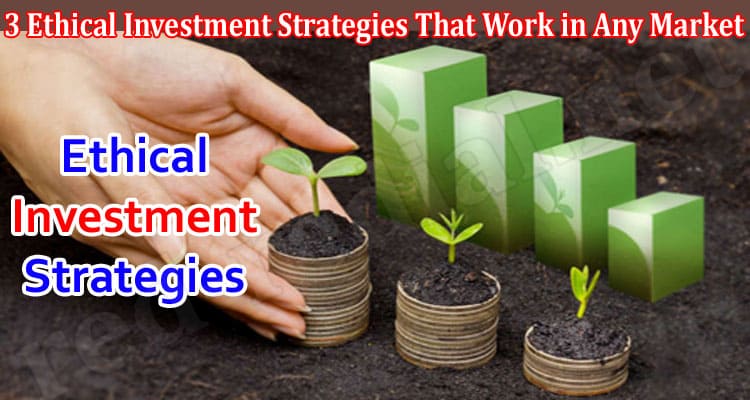3 Ethical Investment Strategies That Work in Any Market
Ethical Investment Strategies: Over the past decade, there has been an increased push for ethical investing. Society and even regulators are increasingly putting pressure on investors, especially institutional investors, to look beyond the bottom line. This is driven by emergent existential issues such as climate change, which largely are fueled by a system that has, for a long time, only focused on the bottom line.
While it may feel like ethical investing constraints investors on where they can put their money, that’s not the case. To create a more sustainable society, governments are creating lots of incentives for investors to make a return on new sustainable industries. New industries that are in line with the new reality are coming up, too. With that, new opportunities are continually coming up for ethical investors.
With this in mind, how do I go about making ethical investments? There are multiple ethical investment strategies that you can try and grow your portfolio. Let’s go through three of those to help you grow your investments, and stay on the good side of regulators and your stakeholders – if you are an institutional investor.
Positive screening
This entails investing through funds that have shown commitment to only investing in companies that comply with environmental, social, and ethical governance issues. Several advantages come with taking a positive screening strategy. One of them is that you increase the odds of your portfolio benefiting from government incentives that can boost growth.
Currently, most governments, especially in the developed world, are committed to environmental sustainability, inclusivity, and human rights. For instance, at the moment, there are many incentives for producing clean, renewable energy. Therefore, investing in such companies is an extra boost to your portfolio, over and above the individual company fundamentals.
Impact investing strategy
This is closely related to positive screening. The only difference is that rather than just investing in companies that encourage sustainability, you go ahead and speculate on those that have the potential to make an impact while at the same time giving a high return on investment. It’s striking a balance between societal change and profits. For instance, if you believe the energy sector will gravitate towards long-term renewable energy and give investors superior returns, you could be an impact investor.
Negative screening
Negative screening is simply the opposite of positive screening. It entails looking at a wide array of companies or investment funds, then cutting out the weak ones on issues such as the environment and diversification in their corporate governance. With this strategy, you can easily narrow down to companies with good sustainability metrics and spread your investments around them.
The whole essence of this strategy is to mitigate risk in your portfolio. That’s because, by removing ESG-weak companies from your potential investment portfolio, you ensure that your money only goes into companies aligned with where society is going next.
An excellent example of negative screening is eliminating fossil fuel companies from your potential investment portfolio. That’s because while such companies may be profitable today, they are likely to decline in importance as renewable energy sources take center stage going into the future.
Recap
Ethical investing is increasingly becoming an essential component of any long-term investment strategy. That’s because government regulations are increasingly leaning more towards sustainability. Society is demanding sustainable development, too, which puts companies that get it right on the environment, social factors, and governance at a potential advantage long term. For this reason, it makes sense to have a strategy that gives you an edge as an ethical investor.




